With peoples’ anxiety about COVID-19 at its lowest point since 2020, folks are most anxious in spring 2022 about current global events and the safety of their families, based on the latest Healthy Minds study from the American Psychiatric Association (APA).
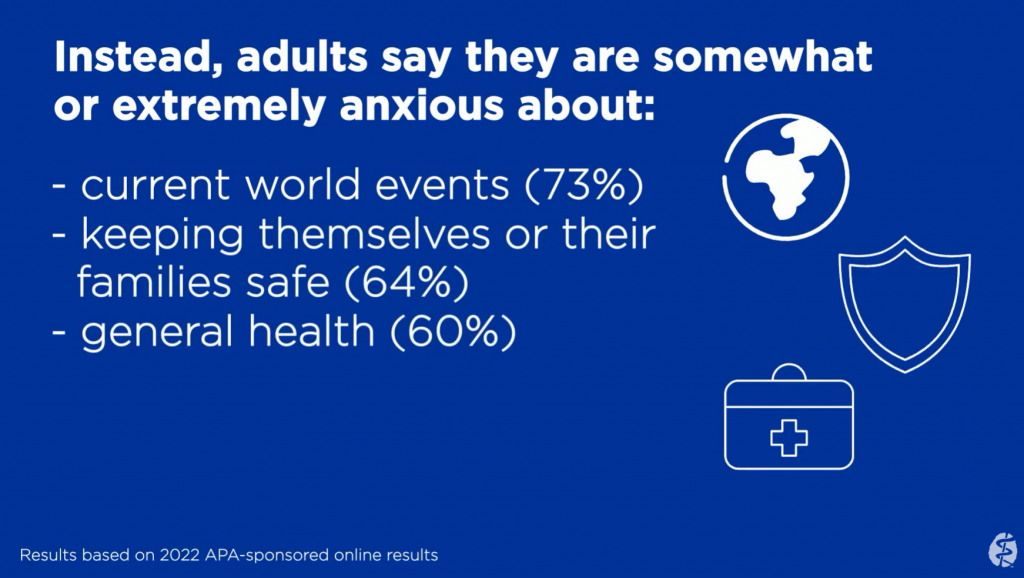
Morning Consult conducted the poll for the APA in March and April 2022 among 2,210 U.S. adults. The survey covered peoples’ perspectives on mental health care, anxiety, COVID-19, children’s mental health, and the workplace. The results were published May 22, 2022.
The key findings of the study were that,
- 3 in 4 people are anxious about current events happening around the world
- 2 in 3 are anxious about keeping their families safe
- 1 in 2 U.S. adults are anxious about COVID-19, down from 75% in 2020 (3 in 4 people – the proportion now concerned about global events)
- More Non-white adults are more likely than Whites to say they are anxious about the possibility of them or their loved ones getting COVID-19.
“It’s not surprising that recent events, such as the war in Ukraine, racially motivated mass shootings or the impacts of climate change, are weighing heavily on Americans’ minds,” APA President Vivian Pender MD said in the study’s press release. “The pandemic and its mental health effects are very much still with us.”
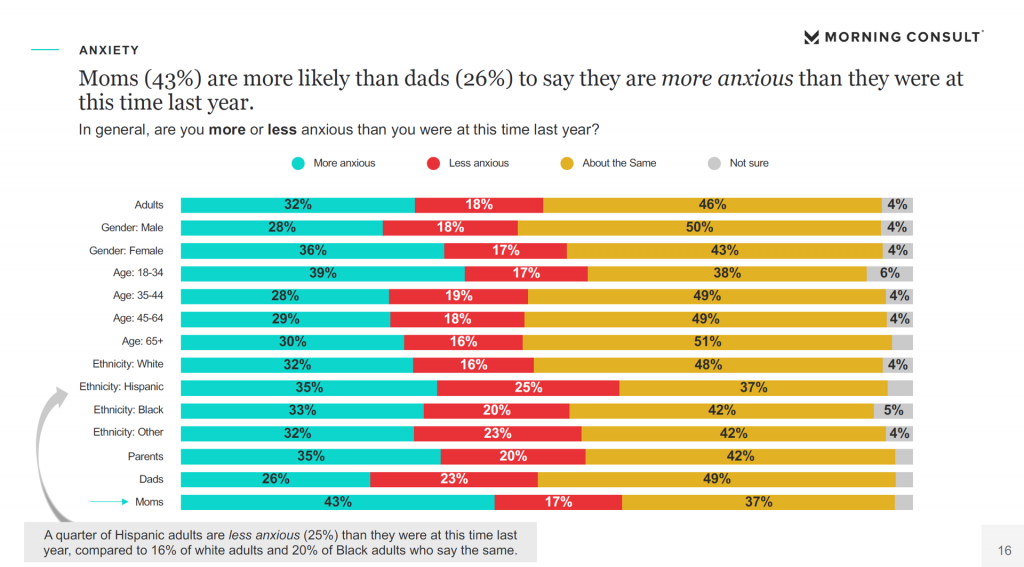
Overall, 32% of U.S. adults admitted to being more anxious in March-April 2022 than they were last year.
But some people are more anxious now than others, the APA found.
Moms are more likely than Dads to say they are more anxious today.
So are younger people ages 18 to 34, and women more than men.
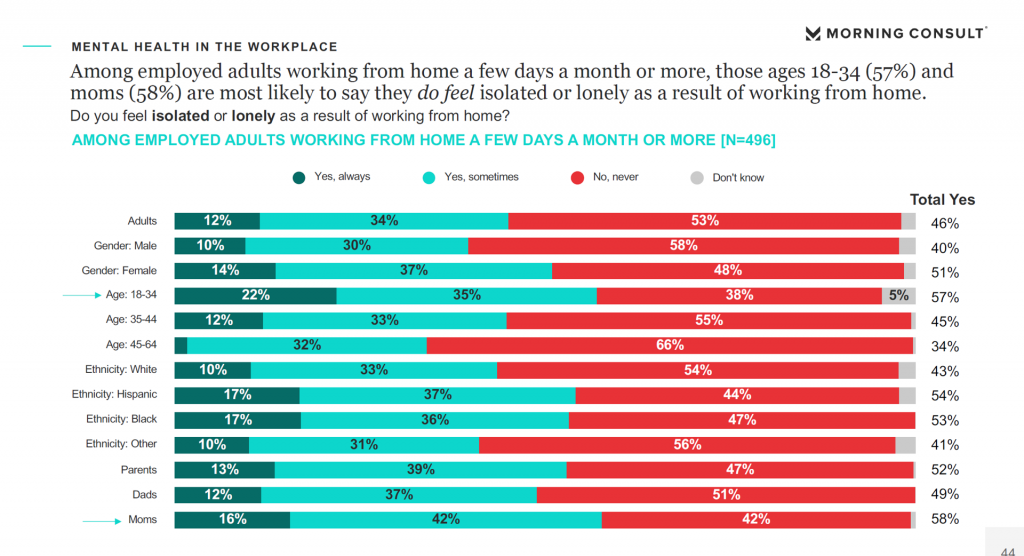
Working from home is a risk factor for social isolation and loneliness, contributing to mental health challenges for many people.
This is especially impacting younger workers ages 18 to 34 and Moms, both of whom copped to feeling more anxious in the previous-discussed data point.
The bar chart also illustrates other data for people working from home: higher rates of self-reported anxiety were found among people who were Black and Hispanic, and more likely women working from home than men.
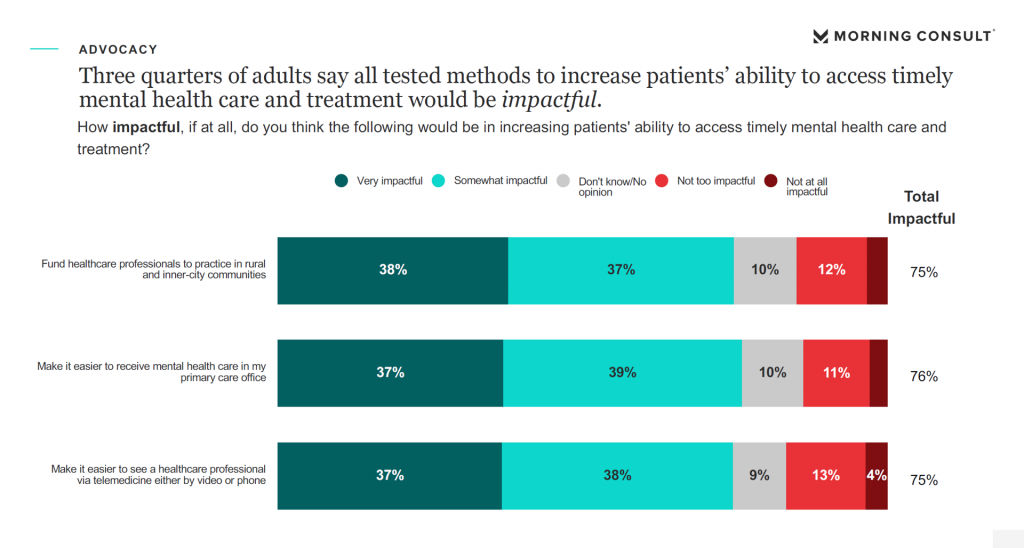
Given peoples’ growing awareness of their states of mental health/anxiety, three in four people believe that increasing patients’ ability to access timely mental health care and treatment would be impactful in three ways:
- By funding health care professionals to practice in rural and inner-city communities
- By making it easier for people to receive mental health care in their primary care providers’ offices, and,
- By making it easier to meet with health care professionals via telehealth and virtual care platforms.
Here’s APA’s video on the study summarizing these important research findings…
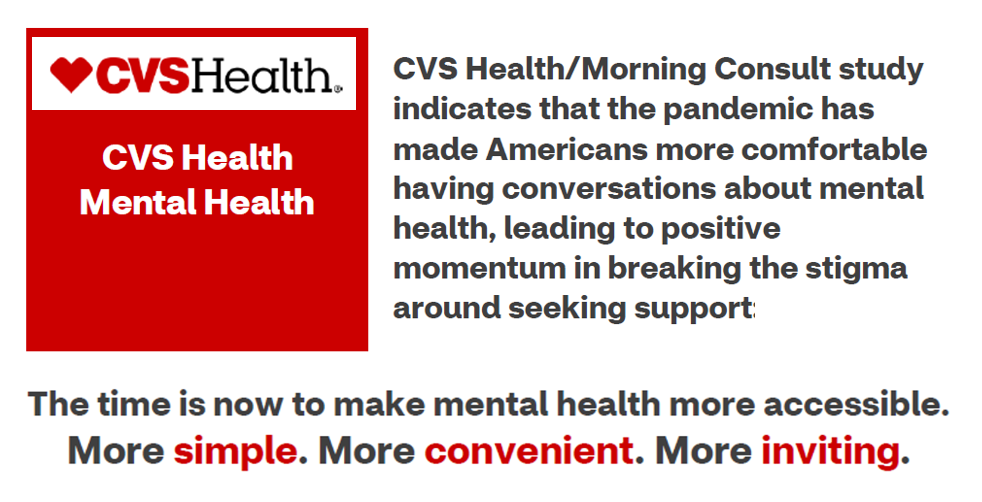
Health Populi’s Hot Points: In CVS Health’s 2022 campaign for Mental Health Awareness Month, they published a brief guide to help us understand the epidemic of stress, anxiety, depression, and mental health concerns impacting all of us and our families.
The time is now to make mental health more accessible. More simple, More convenient, More inviting, CVS Health implores.
In closing, let me confess that I began drafting this post around 4 pm Central European time zone yesterday, 24th May.
I woke up this morning to the tragic news of the Ross Elementary School shooting in Uvalde, Texas, hearing the unbearable news that 19 little children had been killed by guns, and another three adults including the shooter’s grandmother.
Let’s re-state what APA President Dr. Vivian Pender said, quoted above:
“It’s not surprising that recent events, such as the war in Ukraine, racially motivated mass shootings or the impacts of climate change, are weighing heavily on Americans’ minds.”
I turn to the amazing Coach Steve Kerr of the Golden State Warriors who, last night, passionately stated:
“I’m tired of the moments of silence. Enough. There are 50 senators who refuse to vote on #HR8“
Enough.


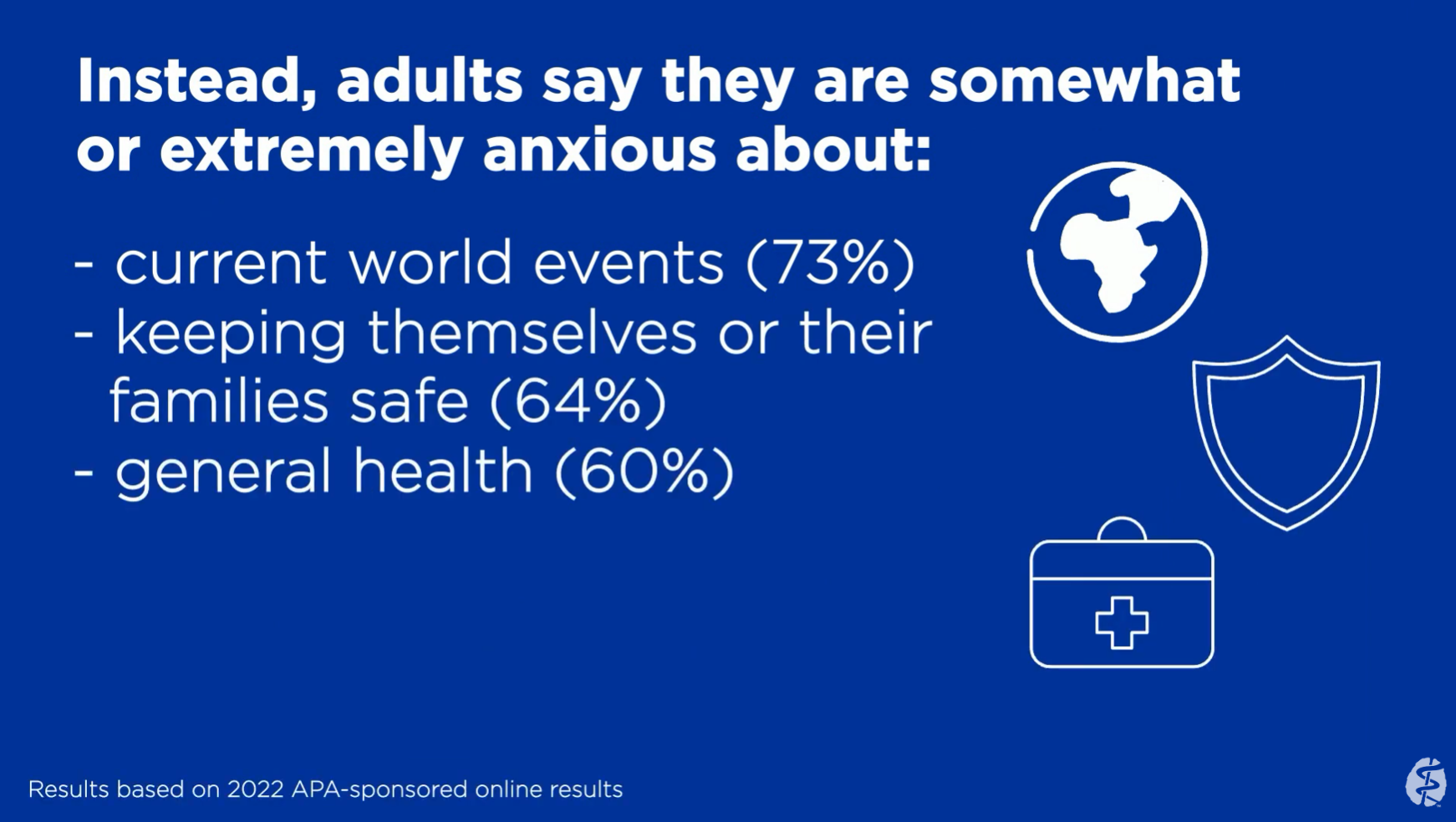


 Interviewed live on BNN Bloomberg (Canada) on the market for GLP-1 drugs for weight loss and their impact on both the health care system and consumer goods and services -- notably, food, nutrition, retail health, gyms, and other sectors.
Interviewed live on BNN Bloomberg (Canada) on the market for GLP-1 drugs for weight loss and their impact on both the health care system and consumer goods and services -- notably, food, nutrition, retail health, gyms, and other sectors. Thank you, Feedspot, for
Thank you, Feedspot, for  As you may know, I have been splitting work- and living-time between the U.S. and the E.U., most recently living in and working from Brussels. In the month of September 2024, I'll be splitting time between London and other parts of the U.K., and Italy where I'll be working with clients on consumer health, self-care and home care focused on food-as-medicine, digital health, business and scenario planning for the future...
As you may know, I have been splitting work- and living-time between the U.S. and the E.U., most recently living in and working from Brussels. In the month of September 2024, I'll be splitting time between London and other parts of the U.K., and Italy where I'll be working with clients on consumer health, self-care and home care focused on food-as-medicine, digital health, business and scenario planning for the future...